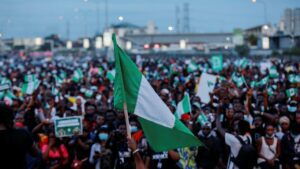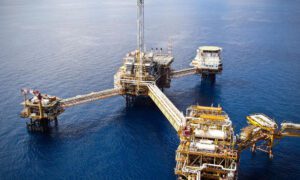
The mirage of fiscal renewal in Nigeria’s 2024 budget
The unveiling of Nigeria’s 2024 budget by President Bola Tinubu was anticipated with a mix of hope and skepticism.
The hope was that the new administration would pivot from the fiscal imprudence that has characterised the nation’s budgeting for decades.
The skepticism stemmed from a history of unfulfilled promises and economic plans that have often sounded more impressive on paper than in practice. Unfortunately, the skepticism seems warranted as the N27.5 trillion budget proposal for 2024, dubbed the ‘Budget of Renewed Hope,’ falls short of the transformative fiscal recalibration that was promised.
At first glance, the budget’s title suggests a fresh start, a breakaway from the past. However, a closer examination reveals a continuation of the same old patterns: “envelope” budgeting, precarious funding assumptions, a bloated recurrent expenditure, a modest capital outlay, a substantial deficit, and an increasing debt burden.
This is not the bold overhaul that Nigerians were promised, but rather a reiteration of the uninspiring fiscal practices of the past two decades.
President Tinubu’s speech to the National Assembly painted an optimistic picture, one where the budget would lay the groundwork for macroeconomic stability, reduce the deficit, and increase capital spending in line with the administration’s priorities. Yet, the reality of the figures tells a different story.
The allocation of N9.92 trillion for non-debt recurrent expenses and N8.25 trillion for debt servicing—which alone consumes a staggering 45 percent of the total budget—signals a continuation of the government’s preference for consumption over investment.
This approach does little to inspire confidence in the budget’s potential to stimulate economic growth or alleviate poverty.Moreover, the projected deficit of N9.18 trillion, which represents 3.88 percent of GDP, though a reduction from the previous year’s 6.11 percent, still underscores a reliance on borrowing.
The planned new borrowings of N7.83 trillion, along with the anticipated N1.05 trillion drawdown on multilateral and bilateral loans, further entrench Nigeria’s precarious revenue position. The expected N298.49 billion from privatisation proceeds is not only insignificant in the grand scheme but also highly speculative, given the government’s historical reluctance to privatize.
The budget reiterates lofty goals such as fostering “job-rich” growth, improving investment stability, and enhancing human capital development. Yet, without a significant shift in the allocation towards capital expenditure and a realistic plan for revenue generation, these objectives seem more aspirational than achievable.
The heavy lean on debt servicing casts a long shadow over the prospects of meeting these goals, as it leaves little room for the necessary investments in infrastructure, education, and healthcare that are critical for sustainable development.
The ‘Budget of Renewed Hope’ was an opportunity for President Tinubu’s administration to demonstrate a commitment to changing the narrative of Nigeria’s economic management. It was a chance to present a budget that would not only reflect the current economic realities but also chart a clear path towards fiscal sustainability and inclusive growth.
Unfortunately, the 2024 budget proposal, as it stands, is a missed opportunity. It is a whimper in the face of Nigeria’s economic challenges, not the bang that was needed to jolt the economy towards a new trajectory.
As the National Assembly deliberates on this budget, it is imperative that lawmakers critically assess the proposed allocations and assumptions. They must push for a more balanced budget that prioritizes capital expenditure and addresses the revenue challenges head-on. It is only through such rigorous scrutiny and a willingness to make tough decisions that Nigeria can hope to achieve the macroeconomic stability and growth that the government so optimistically promises..
Nigeria’s recently announced 2022 budget has been met with criticism from experts who have raised concerns over its assumptions and allocation of funds.
The budget assumes an average oil price of $77.96 per barrel, which is precarious given that prices have averaged $74.38 on Friday.
Additionally, the estimated oil production of 1.78 million barrels per day is questionable, with production averaging 1.35mbpd this year. With 400,000bpd stolen and OPEC seeking to cut production to boost prices, the output target appears unrealistic.
Furthermore, the national budget is still overly dependent on oil and gas revenues. Other assumptions, such as inflation at 21.4 per cent and debt servicing, also raise questions. Inflation rose to 27.3 per cent in October, fuelled by high energy prices, rocketing naira exchange rates and runaway food prices.
The government’s spending over 90 per cent of its revenue on debt-servicing, and still borrowing at breakneck pace, means its deficits and borrowings could eventually exceed estimates. Experts describe annual budgets as an “important instrument of national resource mobilisation, allocation and economic management”.
However, this budget is largely more of the same annual fare, sustaining high recurrent spending. The N1.32 trillion or 5.0 per cent infrastructure vote falls short of the $1.5 billion required under the Reviewed Integrated Infrastructure Master Plan.
The social sectors, primarily education and health, which combined are allotted 12.5 per cent, continue to get short thrift.
This contradicts Tinubu’s electoral promise to allocate at least 10 per cent to health, and the 15 per cent combined agreed for health and education by African countries in 2010. Overall, the budget has been criticised for its assumptions and allocation of funds, which could hinder economic development.


